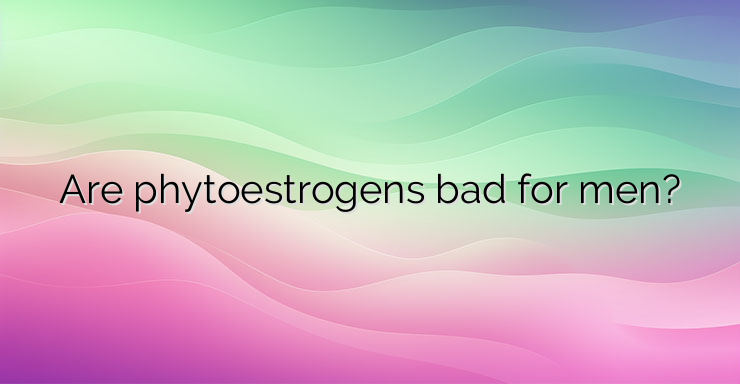What are phytoestrogens? Many plant foods contain phytoestrogens – compounds that are similar to the hormone estrogen. There is a belief that consuming foods high in phytoestrogens can impair male fertility, while other sources claim that these compounds are healthy. How are phytoestrogens similar to estrogen? Phytoestrogens are a group of naturally occurring compounds that can be found in many plant foods. They have different functions in plants. Many of them have strong antioxidant properties and some of them may play a role in protecting plants against infection. These compounds are called “phytoestrogens” because their chemical structure resembles that of the sex hormone estrogen. The prefix “phyto” refers to plants. Estrogen levels are higher in women than in men. This hormone is responsible for female fertility, as well as maintaining the characteristics of the female body, but it also plays an important role in men. The similarity of phytoestrogens to estrogen means that they can interact with the cells’ receptors for estrogen. These receptors mediate the functions of estrogen in the body. However, the effects of phytoestrogens are much weaker than those of estrogens. Also, not all phytoestrogens work the same way. Some block the effects of estrogen, while others mimic its effects. Phytoestrogens are found in most plant-based foods in varying amounts. They all belong to a large group of plant compounds known as polyphenols. What Phytoestrogens Are There? Some of the most studied phytoestrogens include: Lignans – found in many plant-based foods full of fiber, such as seeds, grains, nuts, fruits and berries. Flaxseeds are a particularly rich source of these phytoestrogens; Isoflavones – these are the most widely studied phytoestrogens. They are abundant in soybeans and other legumes, and are also present in berries, grains, nuts, and wine; Resveratrol – found in fruits, berries, red wine, chocolate and peanuts. It is believed to be responsible for some of the health benefits that red wine has; Quercetin is one of the most common antioxidant flavonoids found in many fruits, vegetables and grains Our knowledge of phytoestrogens is gradually expanding and scientists are regularly discovering new types. While some experts are concerned that high doses of phytoestrogens can disrupt the body’s hormonal balance, most studies link them to health benefits. There is no conclusive evidence that phytoestrogens cause problems in healthy men. Bibliography: 1. Healthline. Are Phytoestrogens Harmful for Men? 2. PubMed. Significance of flavonoids in plant resistance and enhancement of their biosynthesis 3. PubMed. Flavonoid function and activity to plants and other organisms 4. PubMed. Dietary lignans:physiology and potential for cardiovascular disease risk reduction 5. PubMed. The spectrum of phytoestrogens in nature: our knowledge is expanding


Leave a Reply